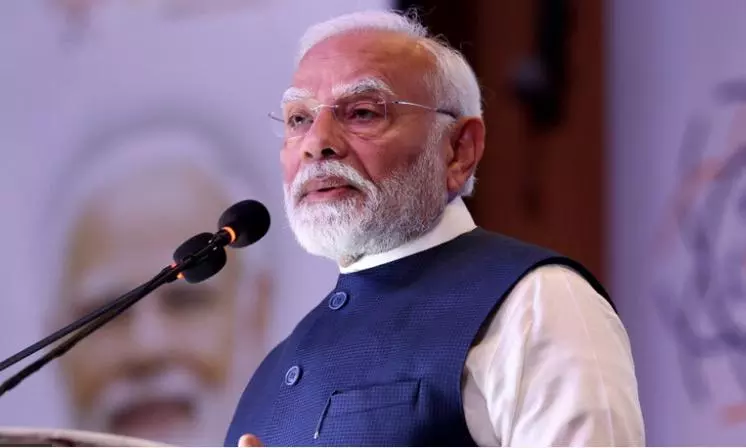
Subscribe to our newsletter Privacy Policy Success! Your account was created and you’re signed in. Please visit My Account to verify and manage your account. An account was already registered with this email.
Please check your inbox for an authentication link. Support Independent Arts Journalism As an independent publication, we rely on readers like you to fund our journalism. If you value our coverage and want to support more of it, consider becoming a member today .

Already a member? Sign in here. We rely on readers like you to fund our journalism. If you value our coverage and want to support more of it, please join us as a member .
This past week, I’ve practically caused a spasm in my eyes from staring at media coverage of the fatal shooting of UnitedHealthcare CEO Brian Thompson. Now that new developments have slowed following the identification of 26-year-old Luigi Mangione as a suspect in the assassination, meme makers across social media platforms have taken to glorifying the Gen-Z computer science nerd-turned-person of interest in a high-profile American killing. Get the latest art news, reviews and opinions from Hyperallergic.
Daily Weekly Opportunities Something about the shooting felt intertwined with my life from the outset — possibly because it occurred not far from buildings where I’ve worked in Midtown Manhattan, or because it was the CEO of the insurance company I receive care through who was killed. The targeted killing was also the first instance of a sensationalized crime I could link my social circles to through social media. When Mangione was charged with the healthcare executive’s murder, I found his Instagram and quickly discovered mutual connections.
I turned to his GoodReads account, a platform on which I often share my book reviews, and I casually compared and contrasted our tastes in literature. These are tangential and imagined connections, but a phenomenon arises from the knowledge that the alleged killer is a member of the Gen-Z generation: Young people feel closer to a suspected killer who once occupied their same digital subcultures than they do to the slain executive of a massive corporation. Emerging from that sentiment is a humor that has fascinated the media.
The alleged details of the case, including the engravings on the shell casings, monopoly money left behind, the suspect’s purported understanding of post-9/11 surveillance in New York City, his apparent flirting with the desk attendant of a youth hostel, and the get-away electric bike all pointed to someone young, at least by the standards of my circles. As a friend texted in a group chat I’m in: “I just knew I’d have mutuals with this guy once they caught him.” Gen-Z’s shared generational status with Mangione, combined with frustrations over American healthcare insurance practices and widespread desensitization from chronic exposure to violent imagery, including the murder of George Floyd and images of Israel’s war on Gaza, might explain the sardonic online reactions to Thompson’s killing.
As of this writing, “Mangione” is the top trending topic on X. Chalked up to “ hate ” by some, the saint-style portraiture, jokes about conjugal visits, fake alibis, jabs at Italian heritage, and comments praising Mangione’s appearance and intelligence barfed up by social media users are an intimate glimpse into how Gen-Z metabolizes the intragenerational suspect of a politicized crime. Almost immediately following Thompson’s murder, X users drew attention to an Anthem Blue Cross policy update that sought to place limits on coverage for anesthesia.
Following the online backlash, the provider reversed that policy, yielding a slew of knowing memes. Seemingly devoid of sympathy for the CEO’s death, memes glorifying Mangione alternatively function as symbols of mass solidarity with those who have died as a result of inadequate healthcare access. Thompson’s killing brought healthcare, which was rarely discussed in this year’s presidential debates, briefly into the feeds of millions of Americans.
For a brief moment following Thompson’s murder, major media outlets propelled complaints against UnitedHealthcare to the forefront, including a class-action lawsuit accusing the company of using an algorithm that “ systematically den[ies] claims ” of Medicare plan holders. Below are many more examples of social media users’ reactions to the arrest of Luigi Mangione — I’ll let you decide whether they’re cruel or meritorious. We hope you enjoyed this article! Before you keep reading, please consider supporting Hyperallergic ’s journalism during a time when independent, critical reporting is increasingly scarce.
Unlike many in the art world, we are not beholden to large corporations or billionaires. Our journalism is funded by readers like you , ensuring integrity and independence in our coverage. We strive to offer trustworthy perspectives on everything from art history to contemporary art.
We spotlight artist-led social movements, uncover overlooked stories, and challenge established norms to make art more inclusive and accessible. With your support, we can continue to provide global coverage without the elitism often found in art journalism. If you can, please join us as a member today .
Millions rely on Hyperallergic for free, reliable information. By becoming a member, you help keep our journalism free, independent, and accessible to all. Thank you for reading.
Share Copied to clipboard Mail Bluesky Threads LinkedIn Facebook.













